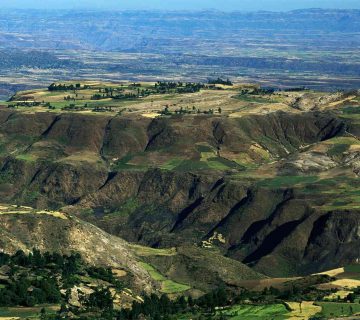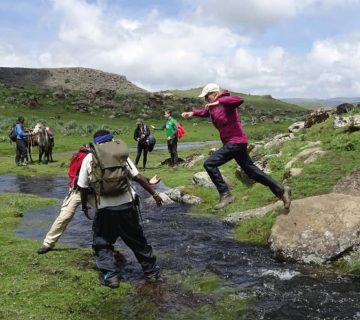Traveling to Ethiopia is an unforgettable experience. From the rock-hewn churches of Lalibela to the tribes of the Omo Valley, the Simien Mountains, and the vibrant streets of Addis Ababa, the country offers culture, history, and natural wonders that are unmatched. To make the most of your journey, it’s important to stay healthy and safe while exploring. Here are some essential health and safety tips for traveling in Ethiopia.
1. Stay Hydrated and Drink Safely
The Ethiopian climate can be hot and dry, especially in lowland areas like the Danakil Depression or the Omo Valley. Always carry bottled or purified water with you. Avoid tap water, ice cubes, and unpasteurized milk. A reusable bottle with a water filter is highly recommended for long trips.
2. Protect Against Food-Related Illness
Ethiopian cuisine is delicious, especially injera with spicy wot stews. However, travelers should take care:
-
Eat freshly cooked meals.
-
Wash fruits and vegetables before eating (or stick to peelable ones like bananas and oranges).
-
Be cautious with street food unless it looks freshly prepared and busy with locals.
3. Prepare for High Altitude
Many Ethiopian destinations, including Addis Ababa (2,355m), Lalibela, and the Simien Mountains, are at high altitude. Some visitors experience altitude sickness. To prevent this:
-
Take it slow on your first few days.
-
Drink plenty of water.
-
Avoid heavy alcohol consumption.
-
If trekking, consider medication for altitude adjustment.
4. Vaccinations and Preventive Care
Before traveling, check with your doctor about recommended vaccines. Common ones include:
-
Hepatitis A & B
-
Typhoid
-
Yellow Fever (required if arriving from certain countries)
-
Rabies (if visiting rural/remote areas)
Malaria is a risk in some lowland regions like the Omo Valley and Gambella, so antimalarial medication and mosquito repellent are essential.
5. Road and Transport Safety
Ethiopia’s road network is improving, but traffic conditions can be unpredictable.
-
Avoid traveling at night.
-
Hire experienced local drivers, especially for rural and off-road trips.
-
Always wear a seatbelt where available.
For domestic flights, Ethiopian Airlines is the safest and most reliable option.
6. Respect Local Customs and Culture
Safety isn’t only physical—it’s also about cultural awareness.
-
Dress modestly, especially at religious sites.
-
Ask permission before photographing people, especially in tribal regions.
-
Learn a few Amharic greetings—it goes a long way with locals.
7. Protect Yourself from the Sun
In high-altitude and desert areas, the sun can be intense.
-
Wear sunscreen, sunglasses, and a hat.
-
Carry lightweight long-sleeve clothing for protection.
8. Money & Personal Safety
Ethiopia is generally safe for travelers, but petty theft can occur in busy areas.
-
Keep valuables close and avoid displaying large amounts of cash.
-
Use hotel safes where available.
-
Rely on banks or ATMs in major cities for currency exchange.
9. Stay Connected
Mobile coverage is expanding, but remote areas may have limited service. Buy a local SIM card (Ethio Telecom) for better connectivity. Share your travel itinerary with friends or family when heading into remote regions.
10. Travel Insurance is a Must
Finally, ensure you have comprehensive travel insurance covering medical emergencies, evacuation, theft, and trip delays. Healthcare in rural Ethiopia is limited, so insurance gives peace of mind.
Final Thoughts
Ethiopia is a safe and welcoming country for travelers, as long as you plan ahead and take basic precautions. With the right preparation, you’ll be free to enjoy breathtaking landscapes, vibrant traditions, and some of the warmest hospitality in Africa.

 then 'Add to home screen'
then 'Add to home screen' then 'Add to home screen'
then 'Add to home screen'

